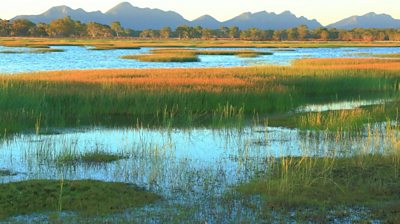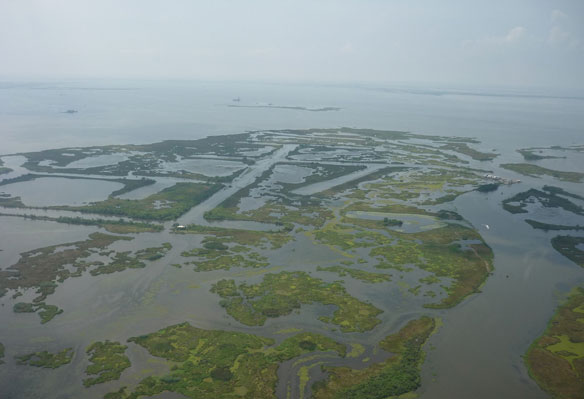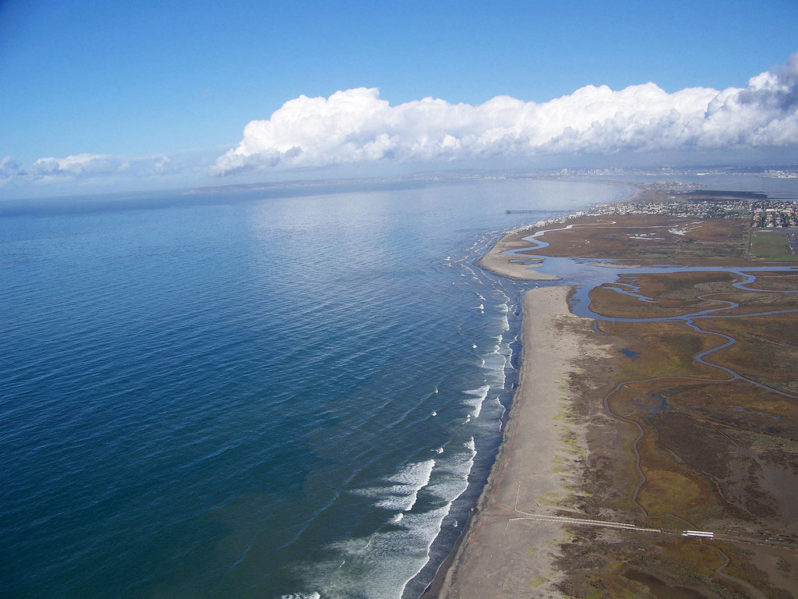Walker Swamp: The mission to restore an Australian wetland

In the shadow of Australia’s Grampians National Park lies Walker Swamp, a once-thriving wetland that was artificially drained and farmed for over a century.
Historic floods reveal how salt marshes can protect us

By digging into major historic records of flood disasters, a research team reveals that the value of nature for flood defense has actually been evident for hundreds of years.
Mississippi river delta marshes have hit a tipping point, study finds

New research finds that marshes in the Mississippi River Delta have hit a tipping point and will likely drown this century due to sea level rise.
Exploring the secrets of marsh happiness

NOAA research reserve scientists and partners recently published a study that examines the secret to marsh happiness. The team learned that “happy” marshes shared similar characteristics, whereas “unhappy” marshes deteriorate in diverse ways. By understanding how marshes can deteriorate so differently, coastal managers can make wiser conservation decisions.
Living Shoreline Permitting Made Easier

The state of North Carolina is well on its way to making it easier for property owners to build living shorelines.
Series of storms more than 150 years ago caused extensive erosion of the Carpinteria Salt Marsh

Flooding isn’t new to the Santa Barbara coastline. However, the inundation doesn’t always come from the mountains as it did last month in Montecito. Back in 1861-2, a series of large storms washed beach sand more than a quarter mile inland into what today is the Carpinteria Salt Marsh. Although historical accounts document the inland flooding, little has been known about how those storms impacted a now heavily developed California coast.
Sea level rise threatens to wipe out West Coast wetlands

Rising seas will drown most wetlands on the U.S. West Coast in less than a century, a new study led by the U.S. Geological Survey warns. In many areas, the wetlands won’t be able to migrate inland without help.
Pacific coast marshes more resistant to rising seas than Atlantic

Pacific marshes are generally at higher elevations than Atlantic marshes, and Pacific oceanographic circulation tends to push water away from the coast, reducing the effect of sea level rise.
New study shows rapid marsh bank sediment build up does not equate land loss resilience

A new study proposes a new framework to look at sediment fluxes in marsh channels that takes into account the natural process of sediment recycling. Understanding how sediments are transported within salt marshes is critical to predict the effect that processes such as nutrient loading, sea-level rise and sediment supply have on marsh erosion.
